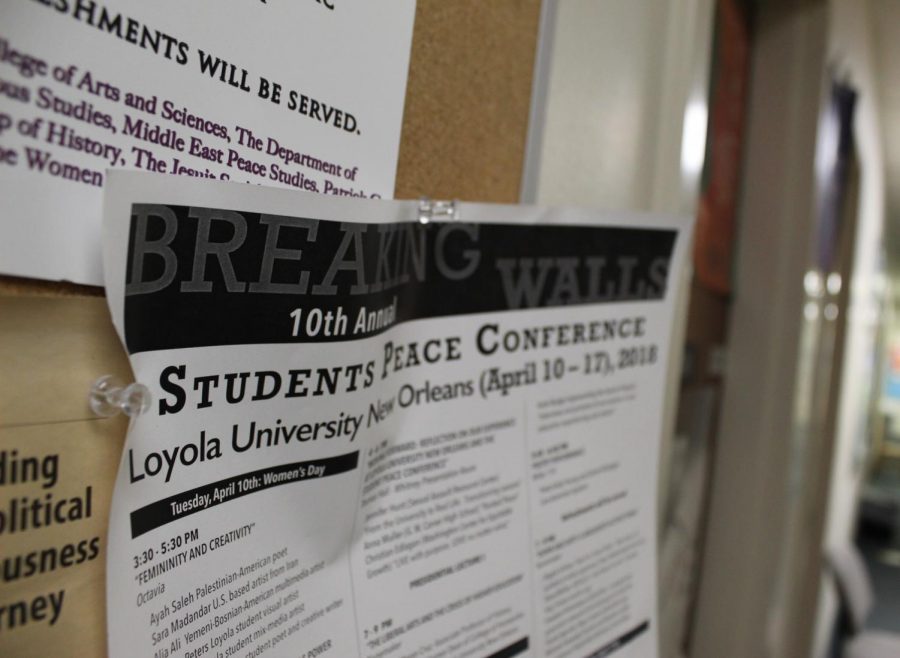Student peace conference gives students opportunity to share work, passion
A peace conference flyer from 2018 hangs outside of the office of the director of Middle East peace studies. The peace conference takes place this year starting March 29. Photo credit: Gabriella Killett
March 19, 2021
During a year when Instagram activism is at its peak, the student peace conference plans to give students the opportunity to explore topics they are passionate about and present their research to judges and other students.
The student peace conference is an annual event at Loyola where students present research based on the year’s theme. The 14th annual student peace conference will take place virtually from March 29 through April 1. The theme of this year’s conference, “Our Voice, Our Ideas, Our Future: Progressing Through a Pandemic,” encompasses multiple topics ranging from racism, to immigration, political accountability and Middle Eastern affairs.
Participants will receive feedback on their research, sharpen their critical thinking skills, and become more socially aware, according to Ember Jetter, the chair and coordinator of the conference.
The conference also gives students an outlet to explore topics outside of their normal realms of study, according to Jetter.
“The conference gives someone like an environmental science major the opportunity to write about the black lives matter movement,” Jetter told the Maroon.
Joseph Pitre, political science and criminology sophomore, said he was first introduced to the student peace conference when he took a Middle Eastern and Islam history course with Behrooz Moazami during his freshman year. Mozami encouraged his students to participate in the conference in order to have real world experiences.
“I was a freshman, I was scared to join the conference last year, so I declared a Middle Eastern peace studies minor this year. I thought it would be a good idea to join and become involved with the conference,” Pitre said.
For this year’s conference, Pitre wrote a comparative paper studying Catholicism and ecological science’s opinion on capitalism’s effect on the environment by examining throw-away culture, industrial pollution and resource exploitation.
“I was in a religious studies course that examined the connection of science and religion, so this topic seemed like a good fit,” Pitre said.
The main goal of the conference is to start a conversation, Pitre said.
“I think it’s a great way for students to get involved and express their passions for what they are studying in different ways,” Pitre told the Maroon.
The conference will also consist of panel discussions with experts in the fields of immigration, politics, criminology, as well as other subjects, according to Jetter.
Students also have the opportunity to win monetary prizes for their work, Jetter said. A monetary prize will be awarded to the top Middle Eastern paper, and two additional prizes will be awarded to students with the overall best papers, Jetter said.
Students from Tulane University and Xavier University can also submit papers and artwork, Jetter said.







